Health
Be well: Ease back-to-school anxiety for kids with these expert tips
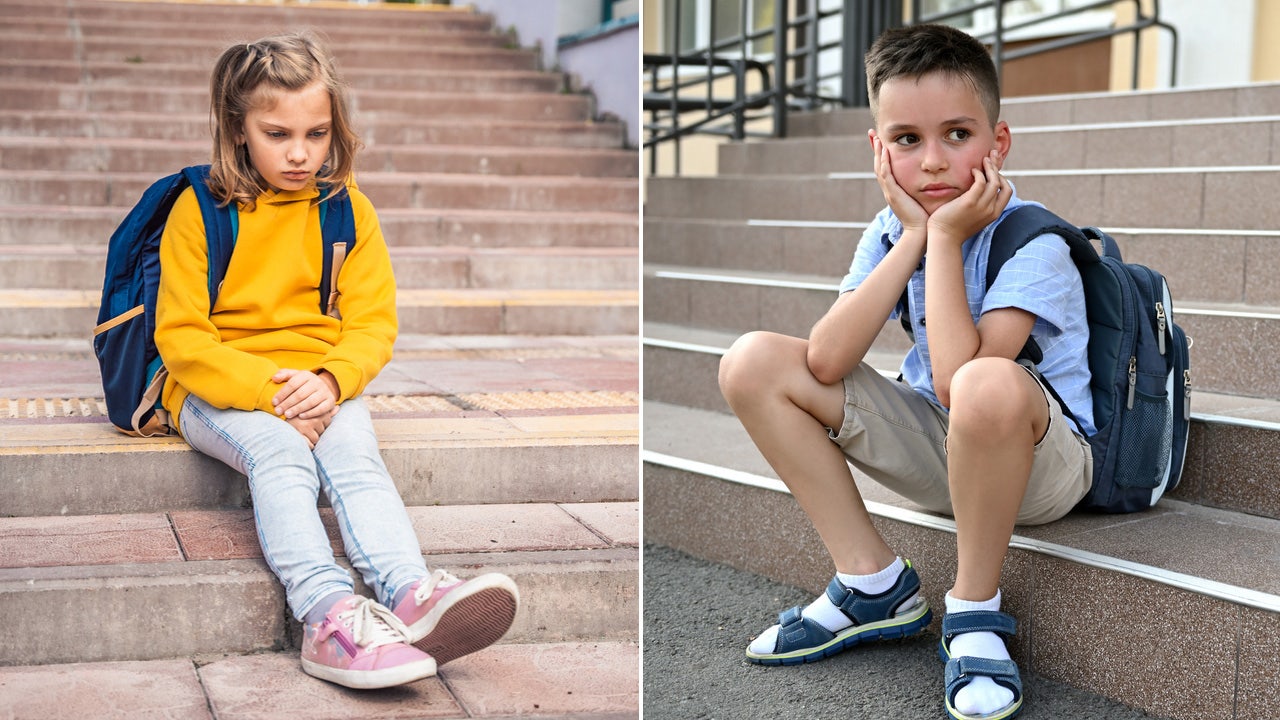
Tips and tricks to prepare for back to school
Founder & CEO of Success Academy Eva Moskowitz on how to prepare your children to head back to the classrooms as well as how to make sure they get enough sleep and cut back on screen time.
The end of summer signals a return to the classroom for millions of children. It’s an exciting time for some, but it can also be scary.
Many children and teens experience heightened anxiety as they return to school, particularly ever since the COVID pandemic, studies have shown.
As they stock up on classroom supplies, clothes and shoes, parents and caregivers may also want to brush up on techniques to ease the back-to-school jitters. Here are tips and insights.
What are the causes of back-to-school anxiety?
Hannah Keeley, a Virginia-based parenting and lifestyle expert and mom of seven with a background in behavioral therapy and neuroscience, said that most cases of back-to-school jitters stem from three main fears.
BACK-TO-SCHOOL SUPPLIES: 10 SECRETS OF SAVING MONEY AMID HIGH INFLATION
One is fear of the unknown.
Many kids become stressed over a fear of exclusion, according to experts. (iStock)
“With many kids, it’s the ‘not knowing’ that is making them nervous,” Keeley said. “One way for parents to help their children lessen this anxiety is to create some solid evidence for them to settle into.”
This might mean scheduling an orientation or visiting the school, finding some other students in the same class and scheduling a playdate, or simply making an introduction if the kids are older.
Another trigger is fear of separation, she said, which can affect kids of any age.
“When my kids were little, I would allow them to have ‘goof-off days’ with me twice a year … The only rule was to have fun and do anything we wanted. It yielded special memories.”
“From a young child going to kindergarten to an older teen going off to college, separation is a very stress-inducing situation,” Keeley said.
Spending special time together before school begins and throughout the year can help kids feel secure in their relationship with their parents, she suggested.
AS CHILDREN STRUGGLE WITH MENTAL HEALTH, SCHOOLS ROLL OUT NEW PROGRAMS, BUT SOME PARENTS ARE SKEPTICAL
“When my kids were little, I would allow them to have ‘goof-off days’ with me twice a year, where the only rule was to have fun and do anything we wanted,” she said.
“It yielded special memories and deep relationship security.”
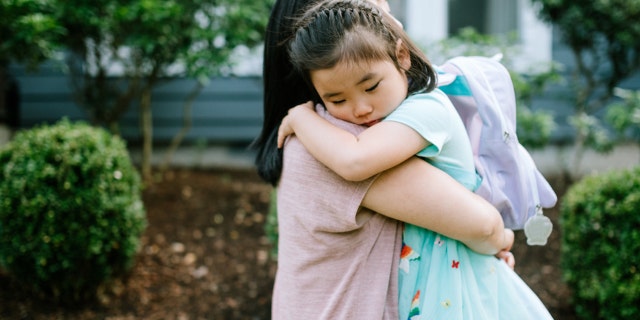
Fear of separation is another common trigger for back-to-school anxiety. (iStock)
Finally, many kids become stressed over a fear of exclusion.
“Being left out is a significant fear for all people, and it has a tendency to rear its ugly head right before school begins,” said Keeley.
“This fear is especially heightened during the middle-school years,” she added.
“With many kids, it’s the ‘not knowing’ that is making them nervous.”
To help put children at ease, she suggested helping them “curate” their image so they feel more confident. That could mean getting them a particular backpack, a certain pair of shoes or perhaps just a fresh haircut.
“Also, continually build up their self-image [of] who they are so they can feel just as confident inside as outside,” Keeley said.
KIDS THRIVE WITH ‘SITTERVISING’ INSTEAD OF CONSTANT PARENTAL INVOLVEMENT, EXPERTS SAY
Dr. Judith Joseph, a board-certified psychiatrist and medical advisor at Sloomoo Institute, a New York-based center for sensory play for kids, shared her top five actionable tips for easing and preventing back-to-school anxiety.
Set expectations
Make sure everyone in the family actively prepares for the back-to-school date, whether it’s the first day of daycare or the first day of high school, suggested Joseph.
“Everyone in the home should start talking about it and putting visual reminders on calendars (both digital and paper) so that the kids’ brains get exposed to this day gradually over time,” she told Fox News Digital.

“If you’re struggling to get your child to talk about their day or how they’re feeling, try getting on their level with a soothing sensory activity that you can both participate in,” an expert suggested. (iStock)
“This time of ‘exposure’ tells the brain that this date is coming, and it calms the fight-or-flight signals in the body, which are triggered by the unknown.”
Stick to a routine
Have a set time for wake-up and bedtime and try to keep the day as similar as possible for the first couple of weeks of school, Joseph recommended.
“Set a breakfast time, a commute plan, a homework time, a decompression time and a time to prepare for the next day (setting out clothes, preparing lunch boxes, etc.),” she said. “Stick to this as much as possible.”
BACK-TO-SCHOOL MENTAL HEALTH: HOW TO CHECK IN WITH YOUR KIDS BEFORE PUTTING THEM ON THE SCHOOL BUS
If kids plan to be involved in after-school activities, Joseph said to consider starting those several weeks after school begins. This will help prevent both the child and the parent from becoming overwhelmed or burned out.
Get on their level with soothing sensory play
“If you’re struggling to get your kids to talk about their day or how they’re feeling, try getting on their level with a soothing sensory activity that you can both participate in,” Joseph suggested.
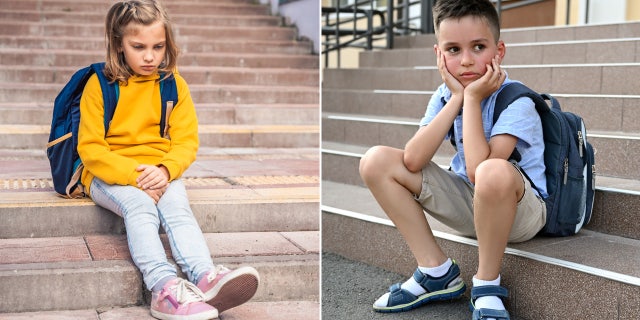
Many children and teens experience heightened anxiety as they return to school, particularly ever since the COVID pandemic, studies have shown. Experts share tips for how to ease this. (iStock)
The children she works with love to play with slime, for example — which relaxes the fight-or-flight response and brings them into the moment by engaging four out of the five senses.
“When parents participate in play, the barriers of age come down and conversation kicks in,” she said.
Have them write in a ‘worry’ journal
As a short-form version of cognitive behavioral therapy, Joseph suggested having kids write down the three things they worry about the most, and then make a list of “evidence” as to why these worries won’t happen.
“Take care of yourself and work with your therapist, your faith leader, your personal trainer or your physician to manage your anxiety.”
“These anxieties are not typically rooted in reality, and they are due to negative thinking or automatic thoughts,” she told Fox News Digital.
Another strategy is to have kids write down three things they’re grateful for, she said.
CLICK HERE TO SIGN UP FOR OUR HEALTH NEWSLETTER
After kids have written in the journal, parents can have them do a relaxing activity such as deep breathing or playing with tactile stimuli, like slime or Play-Doh.
‘Take care of yourself’
Children are sensitive to how their parents react and respond to stress, and they often mirror their behavior, noted Jones.
She offered the following advice: “Take care of yourself and work with your therapist, your faith leader, your personal trainer or your physician to manage your anxiety.”
To read more pieces in Fox News Digital’s “Be Well” series, click here.

Health
Kennedy’s Plan for the Drug Crisis: A Network of ‘Healing Farms’

Though Mr. Kennedy’s embrace of recovery farms may be novel, the concept stretches back almost a century. In 1935, the government opened the United States Narcotic Farm in Lexington, Ky., to research and treat addiction. Over the years, residents included Chet Baker and William S. Burroughs (who portrayed the institution in his novel, “Junkie: Confessions of an Unredeemed Drug Addict”). The program had high relapse rates and was tainted by drug experiments on human subjects. By 1975, as local treatment centers began to proliferate around the country, the program closed.
In America, therapeutic communities for addiction treatment became popular in the 1960s and ’70s. Some, like Synanon, became notorious for cultlike, abusive environments. There are now perhaps 3,000 worldwide, researchers estimate, including one that Mr. Kennedy has also praised — San Patrignano, an Italian program whose centerpiece is a highly regarded bakery, staffed by residents.
“If we do go down the road of large government-funded therapeutic communities, I’d want to see some oversight to ensure they live up to modern standards,” said Dr. Sabet, who is now president of the Foundation for Drug Policy Solutions. “We should get rid of the false dichotomy, too, between these approaches and medications, since we know they can work together for some people.”
Should Mr. Kennedy be confirmed, his authority to establish healing farms would be uncertain. Building federal treatment farms in “depressed rural areas,” as he said in his documentary, presumably on public land, would hit political and legal roadblocks. Fully legalizing and taxing cannabis to pay for the farms would require congressional action.
In the concluding moments of the documentary, Mr. Kennedy invoked Carl Jung, the Swiss psychiatrist whose views on spirituality influenced Alcoholics Anonymous. Dr. Jung, he said, felt that “people who believed in God got better faster and that their recovery was more durable and enduring than people who didn’t.”
Health
Children exposed to higher fluoride levels found to have lower IQs, study reveals
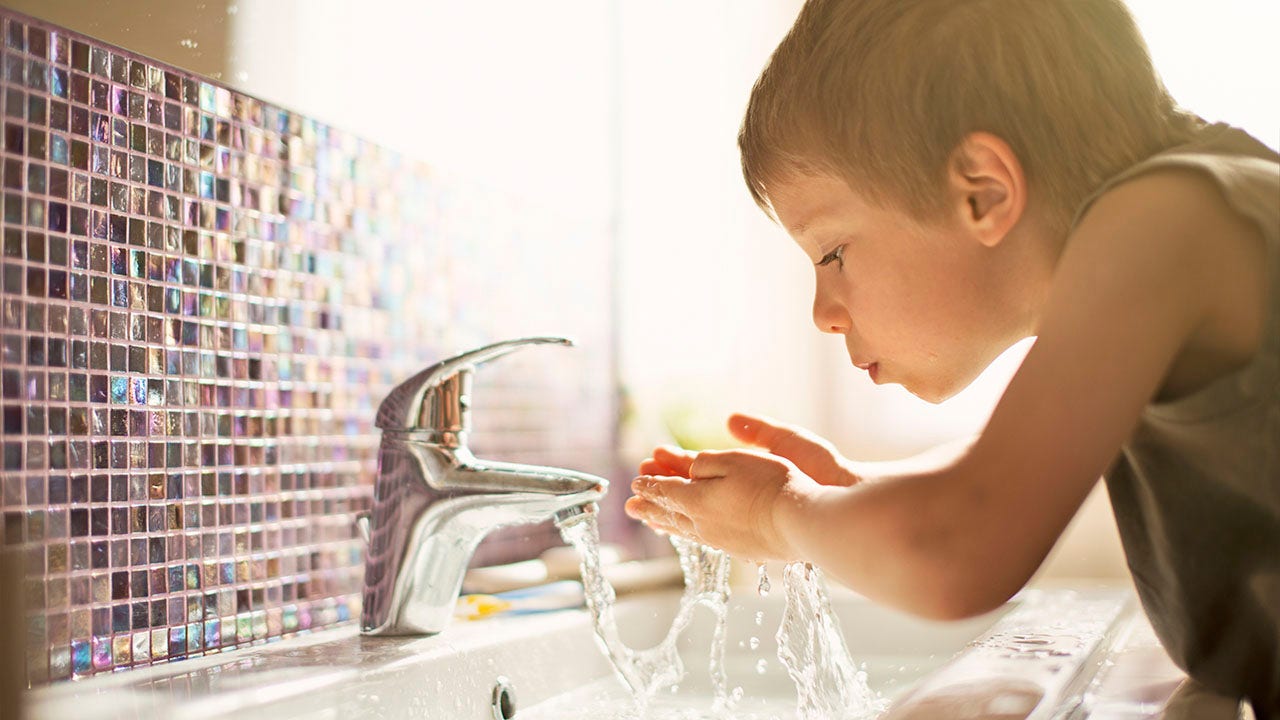
The debate about the benefits and risks of fluoride is ongoing, as RFK Jr. — incoming President Trump’s pick for HHS secretary — pushes to remove it from the U.S. water supply.
“Fluoride is an industrial waste associated with arthritis, bone fractures, bone cancer, IQ loss, neurodevelopmental disorders and thyroid disease,” RFK wrote in a post on X in November.
A new study published in JAMA Pediatrics on Jan. 6 found another correlation between fluoride exposure and children’s IQs.
RFK JR. CALLS FOR REMOVAL OF FLUORIDE FROM DRINKING WATER, SPARKING DEBATE
Study co-author Kyla Taylor, PhD, who is based in North Carolina, noted that fluoridated water has been used “for decades” to reduce dental cavities and improve oral health.
Fluoride exposure has been linked to a variety of negative health effects, yet benefits oral health. (iStock)
“However, there is concern that pregnant women and children are getting fluoride from many sources, including drinking water, water-added foods and beverages, teas, toothpaste, floss and mouthwash, and that their total fluoride exposure is too high and may affect fetal, infant and child neurodevelopment,” she told Fox News Digital.
The new research, led by scientists at the National Institute of Environmental Health Sciences (NIEHS), analyzed 74 epidemiological studies on children’s IQ and fluoride exposure.
FEDERAL JUDGE ORDERS EPA FURTHER REGULATE FLUORIDE IN DRINKING WATER DUE TO CONCERNS OVER LOWERED IQ IN KIDS
The studies measured fluoride in drinking water and urine across 10 countries, including Canada, China, Denmark, India, Iran, Mexico, Pakistan, New Zealand, Spain and Taiwan. (None were conducted in the U.S.)
The meta-analysis found a “statistically significant association” between higher fluoride exposure and lower children’s IQ scores, according to Taylor.
“[It showed] that the more fluoride a child is exposed to, the more likely that child’s IQ will be lower than if they were not exposed,” she said.
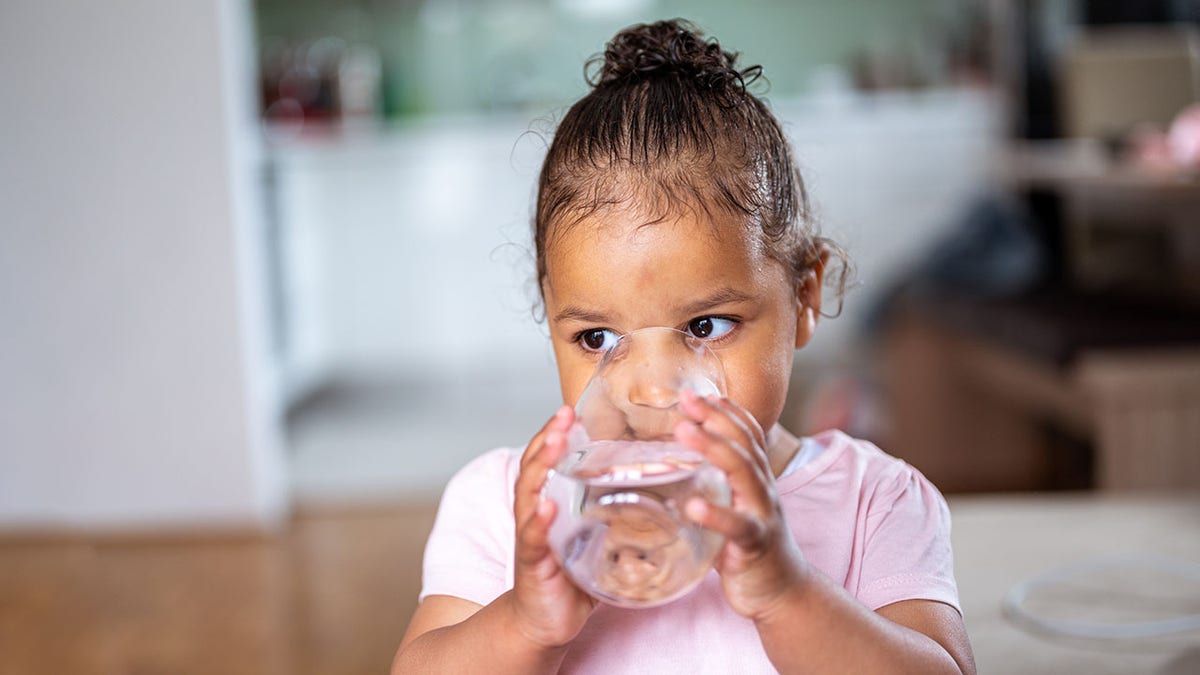
Scientists found a “statistically significant association” between higher fluoride exposure and lower children’s IQ scores. (iStock)
These results were consistent with six previous meta-analyses, all of which reported the same “statistically significant inverse associations” between fluoride exposure and children’s IQs, Taylor emphasized.
The research found that for every 1mg/L increase in urinary fluoride, there was a 1.63-point decrease in IQ.
‘Safe’ exposure levels
The World Health Organization (WHO) has established 1.5mg/L as the “upper safe limit” of fluoride in drinking water.
“There is concern that pregnant women and children are getting fluoride from many sources.”
Meanwhile, the U.S. Public Health Service recommends a fluoride concentration of 0.7 mg/L in drinking water.
“There was not enough data to determine if 0.7 mg/L of fluoride exposure in drinking water affected children’s IQs,” Taylor noted.
FDA BANS RED FOOD DYE DUE TO POTENTIAL CANCER RISK
Higher levels of the chemical can be found in wells and community water serving nearly three million people in the U.S., the researcher noted.
She encouraged pregnant women and parents of small children to be mindful of their total fluoride intake.
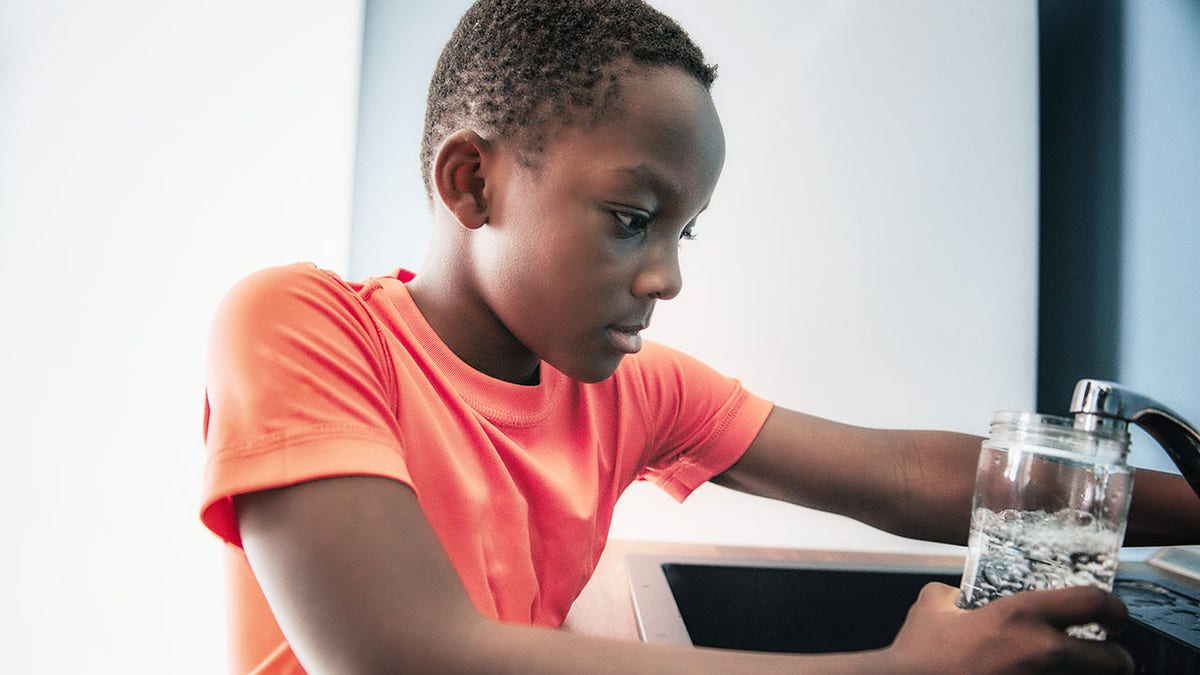
Nearly three million people have access to wells and community water with fluoride levels above the levels suggested by the World Health Organization. (iStock)
“If their water is fluoridated, they may wish to replace tap water with low-fluoride bottled water, like purified water, and limit exposure from other sources, such as dental products or black tea,” she said.
“Parents can use low-fluoride bottled water to mix with powdered infant formula and limit use of fluoridated toothpaste by young children.”
For more Health articles, visit www.foxnews.com/health.
While the research did not intend to address broader public health implications of water fluoridation in the U.S., Taylor suggested that the findings could help inform future research into the impact of fluoride on children’s health.
Dental health expert shares cautions
In response to this study and other previous research, Dr. Ellie Phillips, DDS, an oral health educator based in Austin, Texas, told Fox News Digital that she does not support water fluoridation.
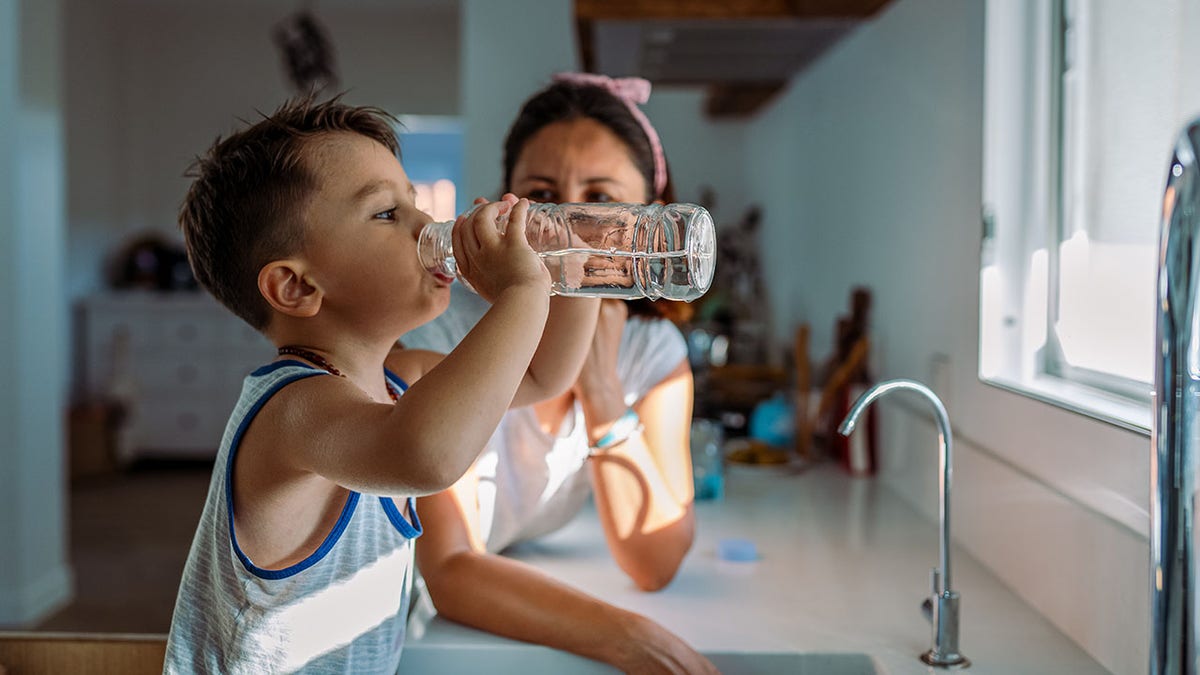
The study researcher encouraged parents of small children to be mindful of their total fluoride intake. (iStock)
“I join those who vehemently oppose public water fluoridation, and I question why our water supplies are still fluoridated in the 21st century,” she wrote in an email.
“There are non-fluoridated cities and countries where the public enjoy high levels of oral health, which in some cases appear better than those that are fluoridated.”
CLICK HERE TO SIGN UP FOR OUR HEALTH NEWSLETTER
Phillips called the fluoride debate “confusing” even among dentists, as the American Dental Association (ADA) advocates for fluoride use for cavity prevention through water fluoridation, toothpaste and mouthwash — “sometimes in high concentrations.”
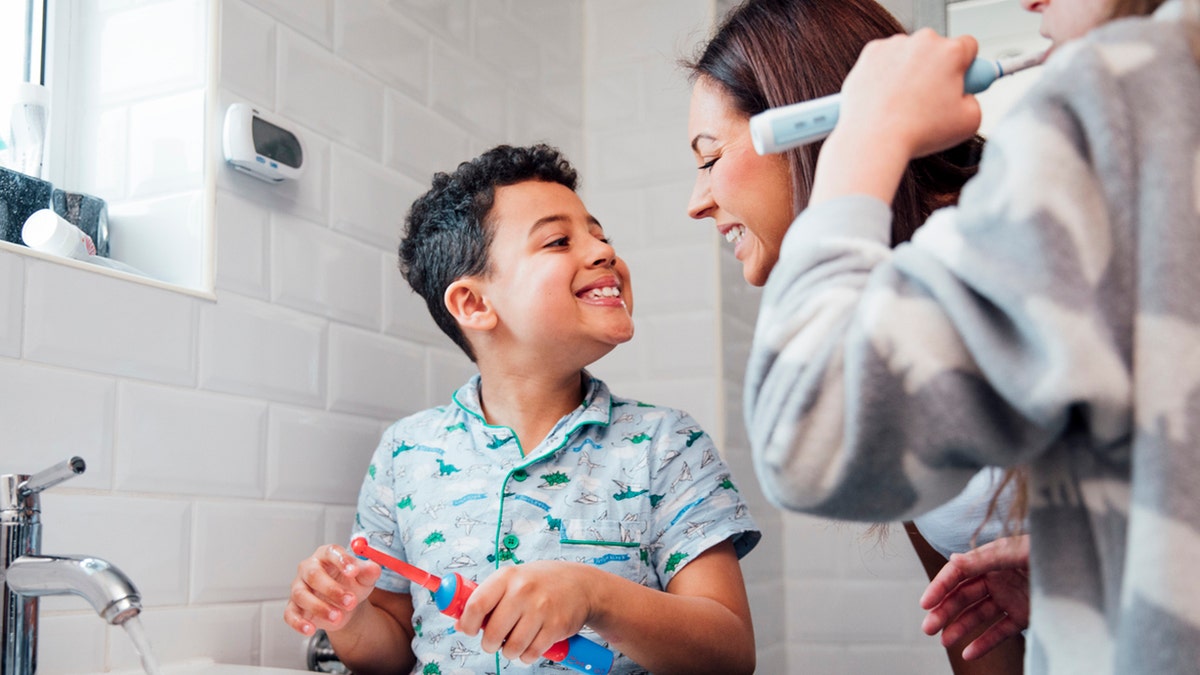
Fluoride is used in water, toothpaste and mouthwash to help prevent cavities. (iStock)
“[But] biologic (holistic) dentists generally encourage their patients to fear fluoride and avoid its use entirely, even if their teeth are ravaged by tooth decay,” she said.
“Topical fluoride is beneficial, while systemic consumption poses risks.”
Phillips encouraged the public to consider varying fluoride compounds, the effect of different concentrations and the “extreme difference” between applying fluoride topically and ingesting it.
“Topical fluoride is beneficial, while systemic consumption poses risks,” she cautioned.
“Individuals must take charge of their own oral health using natural and informed strategies.”
The study received funding from the National Institute of Environmental Health Sciences (NIEHS), the National Institutes of Health (NIH) and the Intramural Research Program.
Health
Treating Other Diseases With Ozempic? Experts Weigh In | Woman's World

Sign Up
Create a free account to access exclusive content, play games, solve puzzles, test your pop-culture knowledge and receive special offers.
Already have an account? Login
Use left and right arrow keys to navigate between menu items.
Use escape to exit the menu.
-
/cdn.vox-cdn.com/uploads/chorus_asset/file/25822586/STK169_ZUCKERBERG_MAGA_STKS491_CVIRGINIA_A.jpg)
/cdn.vox-cdn.com/uploads/chorus_asset/file/25822586/STK169_ZUCKERBERG_MAGA_STKS491_CVIRGINIA_A.jpg) Technology1 week ago
Technology1 week agoMeta is highlighting a splintering global approach to online speech
-

 Science7 days ago
Science7 days agoMetro will offer free rides in L.A. through Sunday due to fires
-
/cdn.vox-cdn.com/uploads/chorus_asset/file/23935558/acastro_STK103__01.jpg)
/cdn.vox-cdn.com/uploads/chorus_asset/file/23935558/acastro_STK103__01.jpg) Technology7 days ago
Technology7 days agoAmazon Prime will shut down its clothing try-on program
-

 News1 week ago
News1 week agoMapping the Damage From the Palisades Fire
-

 News1 week ago
News1 week agoMourners Defy Subfreezing Temperatures to Honor Jimmy Carter at the Capitol
-
/cdn.vox-cdn.com/uploads/chorus_asset/file/25826211/lorealcellbioprint.jpg)
/cdn.vox-cdn.com/uploads/chorus_asset/file/25826211/lorealcellbioprint.jpg) Technology6 days ago
Technology6 days agoL’Oréal’s new skincare gadget told me I should try retinol
-
/cdn.vox-cdn.com/uploads/chorus_asset/file/25832751/2192581677.jpg)
/cdn.vox-cdn.com/uploads/chorus_asset/file/25832751/2192581677.jpg) Technology3 days ago
Technology3 days agoSuper Bowl LIX will stream for free on Tubi
-

 Business4 days ago
Business4 days agoWhy TikTok Users Are Downloading ‘Red Note,’ the Chinese App















